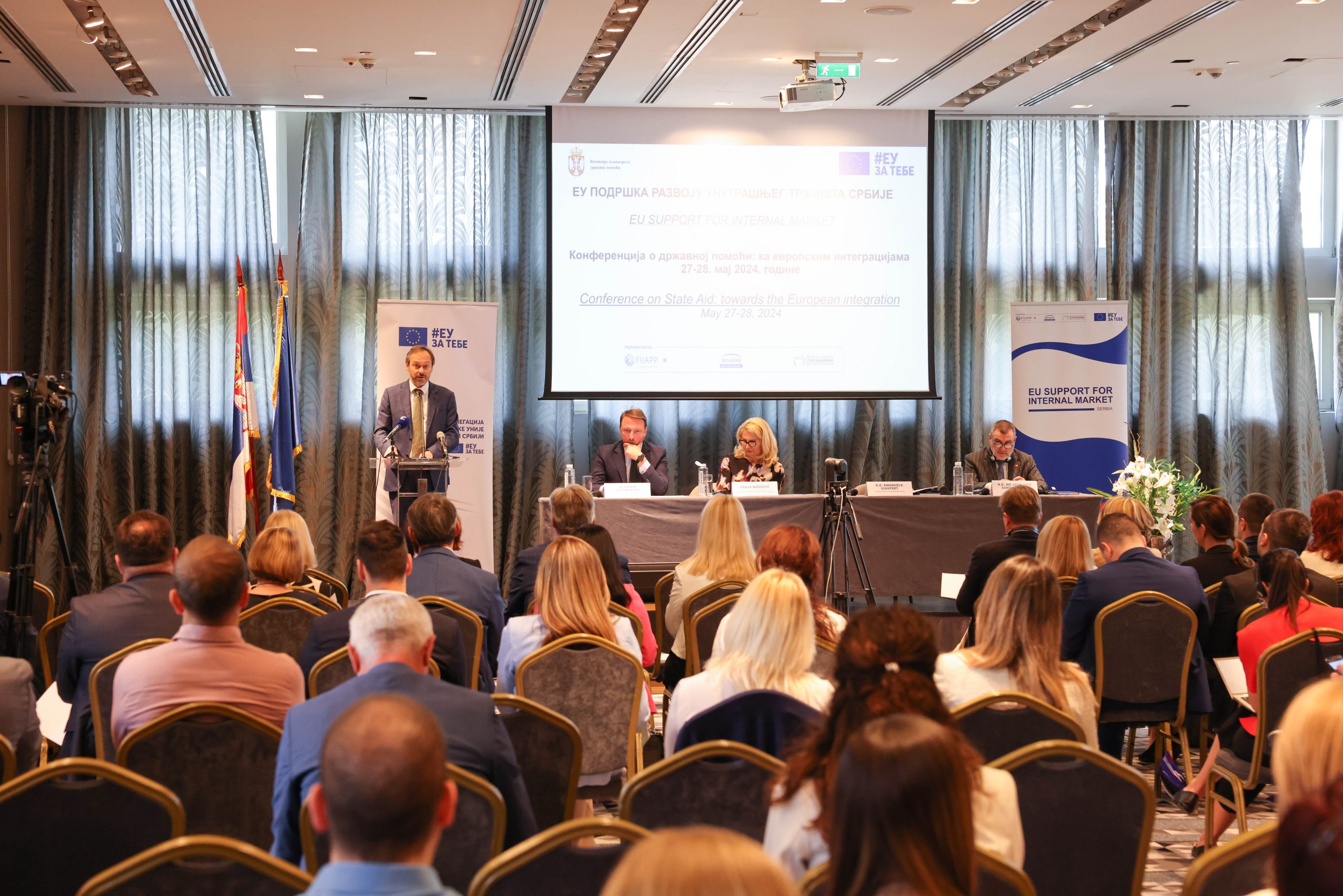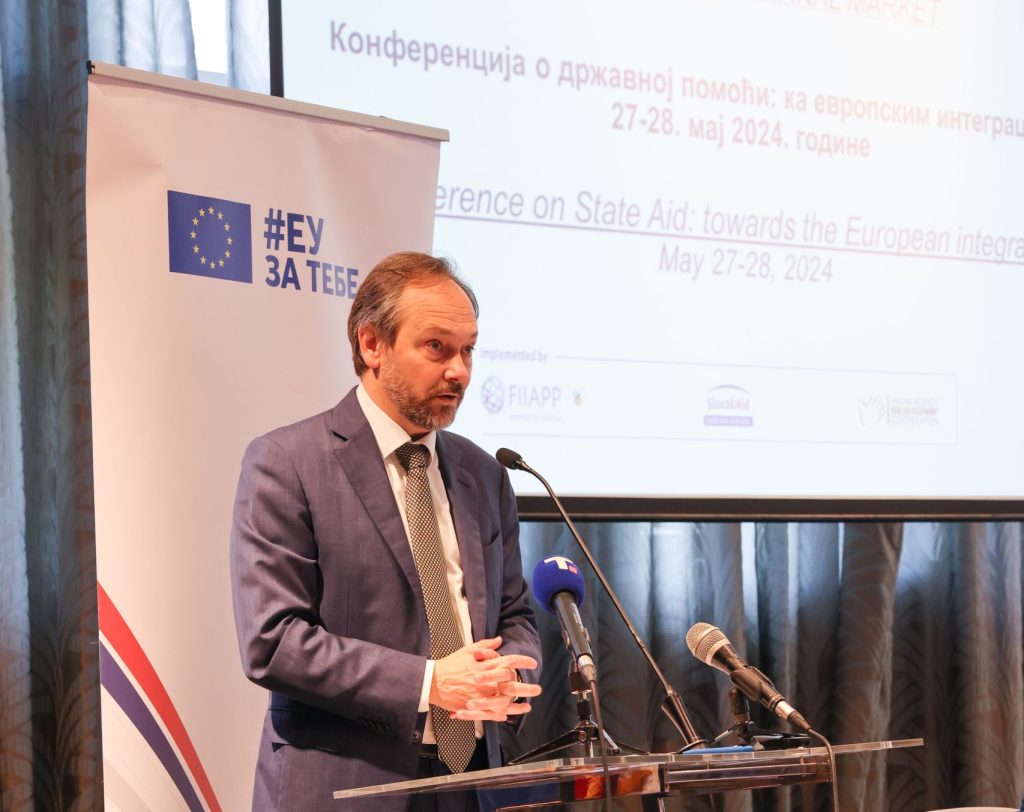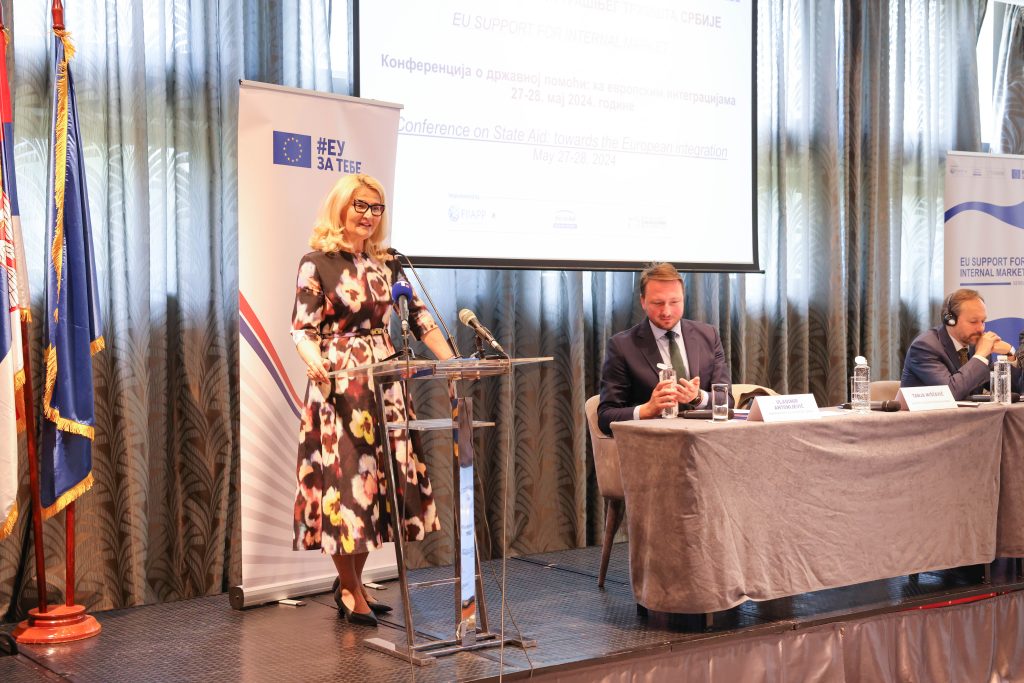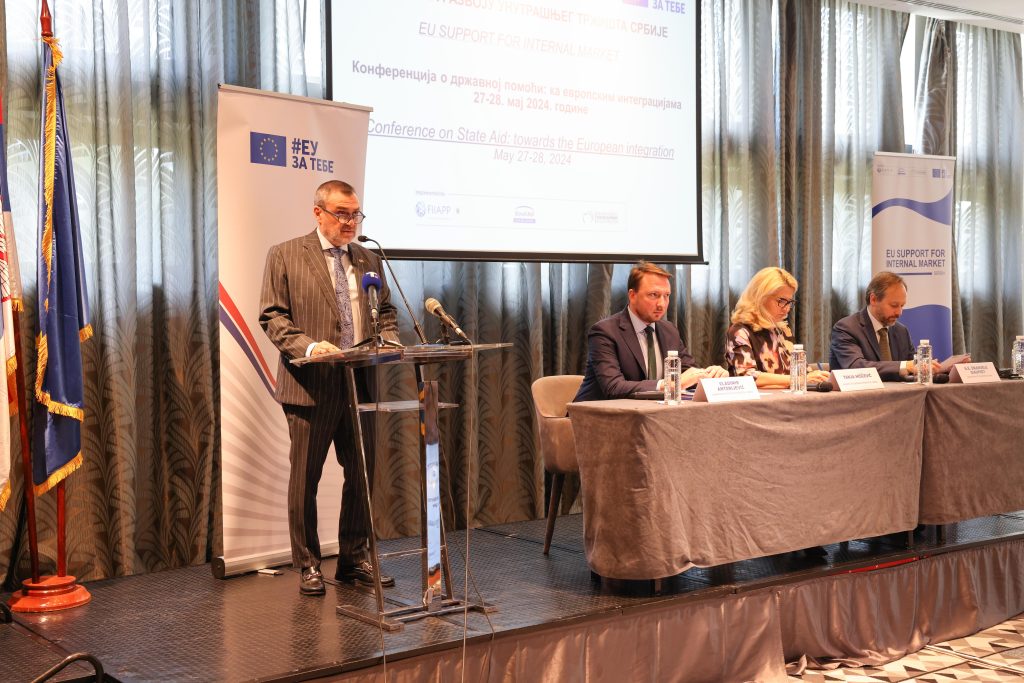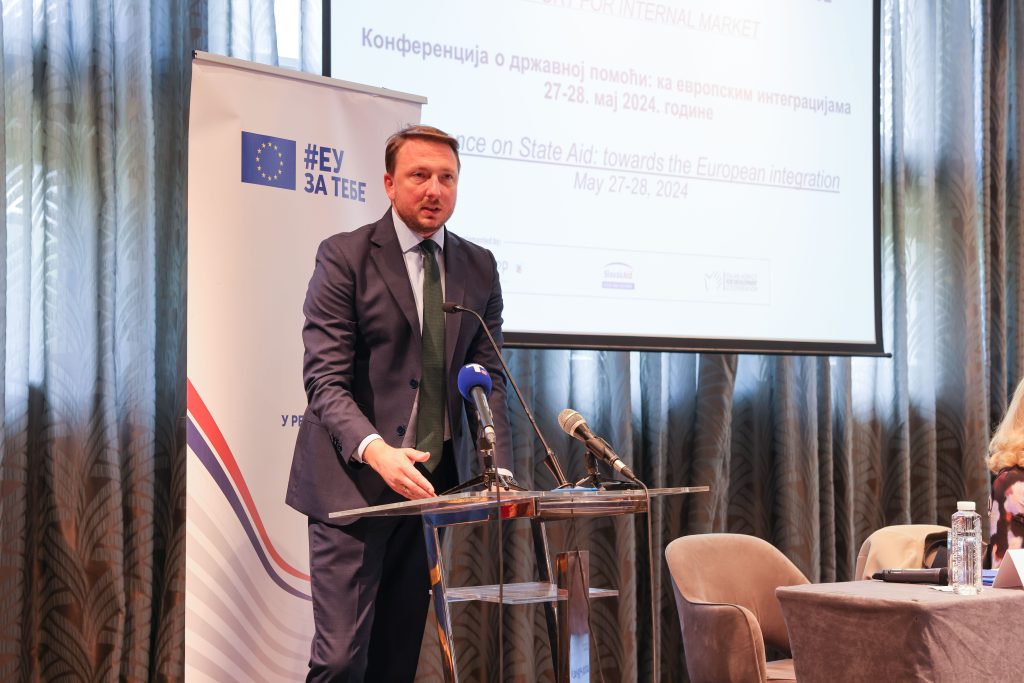For the countries in the process of accession to the European Union, state aid, as part of Chapter 8 on competition policy, has proven to be one of the most demanding reform areas in the accession process. This topic was discussed in more detail at today’s conference on state aid, in the context of Serbia nearing the EU.
The conference was opened by the Minister for European Integration – Tanja Miščević, Emanuele Giaufret, the Ambassador of the European Union to Serbia, the Ambassador of Spain – Juan Jose Sanz Aparicio, as well as the President of the Commission for State Aid Control (CSAC) – Vladimir Antonijević.
The event was organized by the CSAC and the project “EU Support for Internal Market of Serbia”, composed of a team of experts from three member states – Spain, Italy and Slovakia.
On that occasion, Ambassador Giaufret highlighted Serbia’s progress in this area, namely the new Law on the State Aid Control, the adoption of numerous bylaws, as well as the strengthening of the capacity of the Commission for the State Aid Control. However, there is still a lot of work to be done.
“The legislative framework still needs to be completed to ensure a sufficient level of compliance with the acquis. We know that the Commission for State Aid Control is working hard to draft the remaining secondary legislation and we would like to encourage the Commission to keep up the good work in this regard. Given that the legal framework is constantly developing, this is another reason to improve the work as much as possible”, said Ambassador Giaufret.
“Serbia should adopt a list of state aid schemes and, along with it, an action plan for harmonization of all state aid schemes that are not aligned with Serbia’s commitment from the Stabilization and Association Agreement.” The Ambassador also stated that “the Commission for State Aid Control needs to prove its operational independence through a series of independent and courageous decisions.”
The Minister for European Integration, Tanja Miščević, said the following:
“For me, one of the essential topics in the accession process is Chapter 8, that is, state aid and competition”, and also added:
“State aid is one of the most difficult elements that the candidate country needs to fulfil and leaves it for the very end of the process. According to the new methodology, Chapter 8 is an integral part of the Cluster 2. Serbia is fully aware of its obligations under this Chapter. One of the big issues at the beginning was the Smederevo Steel Mill and the granting of state aid, which we successfully resolved”, said the Minister.
The Ambassador of Spain in Serbia, Juan Jose Sanz Aparicio, spoke more about the project itself, “EU Support for Internal Market of Serbia”. According to his words, the goal of the project is the integration of the Serbian market with the European Union market.
The project will last three years, and the European Union has allocated EUR 8 million for its implementation.
The project includes several areas: market surveillance and quality infrastructure, establishment of single contact points for services, support in the field of state aid and competition, intellectual property rights, consumer protection, and e-commerce.
Vladimir Antonijević, President of the Commission for State Aid Control, pointed out that the market rests on healthy competition, and that this topic is of great importance in the European Union.
“I believe that the presentation of the experiences of our colleagues from the region will show that we are facing similar problems, and that colleagues from the EU will share their positive experiences,” he concluded.

